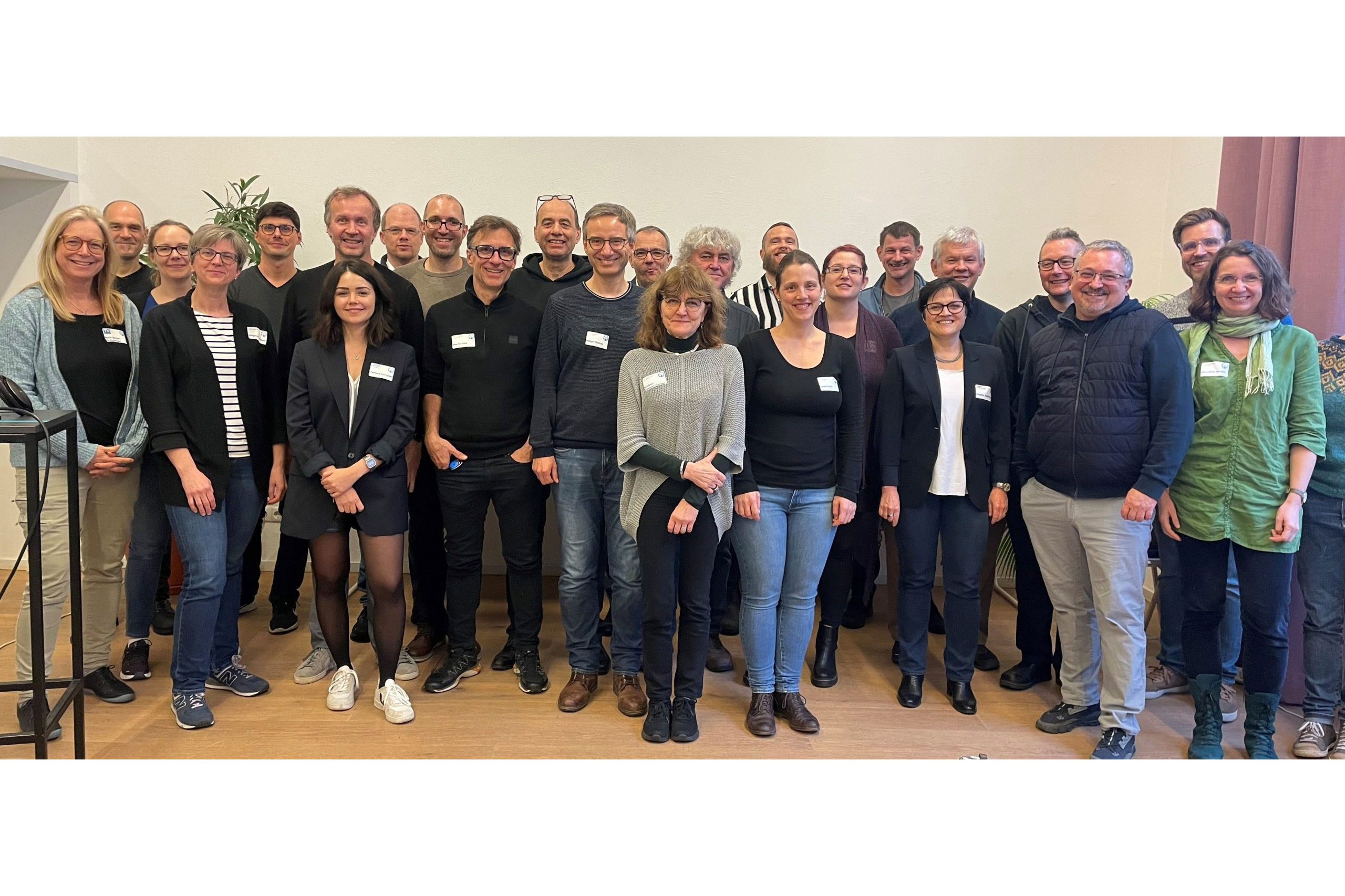On February 23, 2024, CoE key researchers gathered for the second CoE Science Day. The day featured engaging presentations on work packages studying microbiome interactions and perturbations.
The work package leaders presented their research plans, hired personnel, and first activities for each of the ten work packages. These engaging presentations, covering a wide range of topics, were followed by stimulating discussions that promoted collaborations and synergies in the CoE.
Deputy Director of Research Christine Moissl-Eichinger (Med Uni Graz) and BoD Member Angela Sessitsch (AIT) introduced their approaches to study microbiome interactions in underexplored ecosystems, such as the human small intestine and microbiomes under invasion pressure.
BoD Member Christina Kaiser and key researchers Matthias Horn and Martin Polz (all Uni Vienna) provided insights into their projects studying microbiome interactions across domains – trees and their root fungi, eukaryotes and their viral parasites, and the host and their microbiome during inflammation, respectively,
Two work packages will study the effects of chemical perturbation resulting from drug intake and emerging pollutants on microbiome functioning. Director of Research Michael Wagner illustrated their plans to investigate how pharmaceuticals perturb the human gut microbiomes, and how this is linked to treatment side effects, antimicrobial resistance and, ultimately, therapy efficiency. CoE Key researcher Thilo Hofmann will tackle a similarly relevant topic – the microbiome perturbations resulting from microplastics and toxic additives of tire wear particles in soil and sediment.
Finally, in Project 4, Key researchers Dagmar Wöbken, Andreas Richter, and Katharina Kitzinger will study how microbiomes respond to environmental perturbations through climate and land use change. These work packages will include surveying microbiomes under climate extremes such as drought, in thawing permafrost, and in agricultural landscapes.


